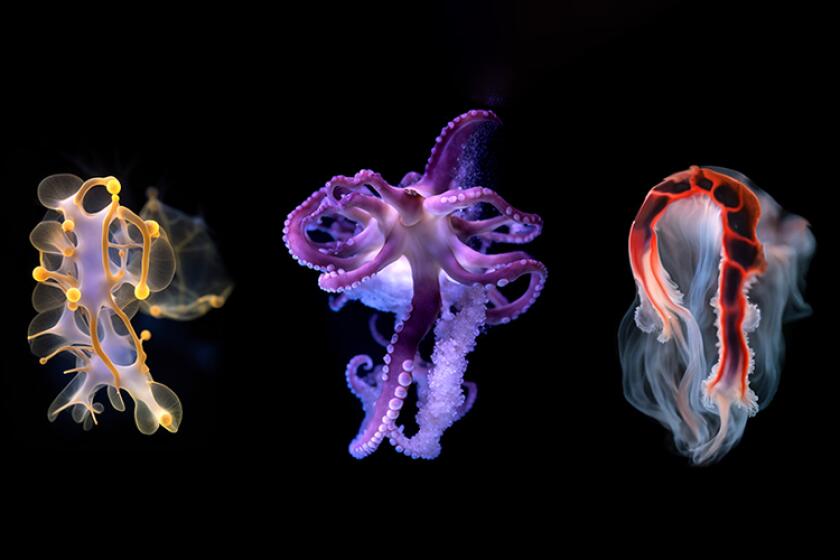OPERA REVIEW : Carol Neblett: A New Girl of the Golden West
Minnie, the golden-voiced and golden-hearted heroine of Puccini’s “La Fanciulla del West,” is a daunting prospect for any soprano.
It is easy to make a campy caricature of the gun-toting, Bible-quoting, booze-slinging, card-cheating, essentially unkissed saloon-keeper who would do anything for love.
Even if a singing actress happens to be smart enough to evade the dramatic traps, she must still cope with an unusually cruel vocal challenge. The role rises to thunderous climaxes and requires extraordinary stamina and power in moments of exultation yet reverts to lyric finesse when introspection beckons.
Friday night at the Dorothy Chandler Pavilion, Carol Neblett took over the assignment from Gwyneth Jones and demonstrated why she has long had few rivals as the angelic barmaid. The soprano from Modesto enjoyed her first success in the opera 17 years ago in Turin. She assumed the role in the Hal Prince production now at the Music Center when it was first mounted in 1978 in Chicago.
It would be unrealistic to claim that Neblett makes every tone sound smooth and easy. Her vibrato is not always under perfect control, and descending phrases sometimes evaporate in thin air. But her technical problems hardly matter in context.
Neblett approaches Puccini’s complexities and contradictions with unflinching abandon. She summons tones of gleaming brilliance for the heroic outbursts, caresses the line with a sensuous legato in the tender passages and illuminates the parlando utterances with fine expressive point.
As an actress, she savors telling detail. She is gawky and vulnerable at the outset--one actually believes her when she claims never to have waltzed before--and unabashedly open in her love scene with Dick Johnson. When in the finale she pumps a handcar down a convenient railroad track to save her tenor from the sheriff’s noose, she looks as silly as any pistol-packing diva. But she instantly recovers her composure and restores sympathy upon arrival.
David Belasco, who wrote the melodrama that inspired the opera, described Minnie carefully: “Her utter frankness takes away all suggestion of vice--showing her to be unsmirched, happy, careless, untouched by the life about her. Yet she has a thorough knowledge of what the men of her world generally want.” Neblett obviously knows her Belasco.
She provided a compelling central force in a romantic triangle that again enlisted Placido Domingo as the ardent hero and Justino Diaz as his imposing nemesis. With Richard Buckley in the pit, it was a good night at the opera.
More to Read
The biggest entertainment stories
Get our big stories about Hollywood, film, television, music, arts, culture and more right in your inbox as soon as they publish.
You may occasionally receive promotional content from the Los Angeles Times.






